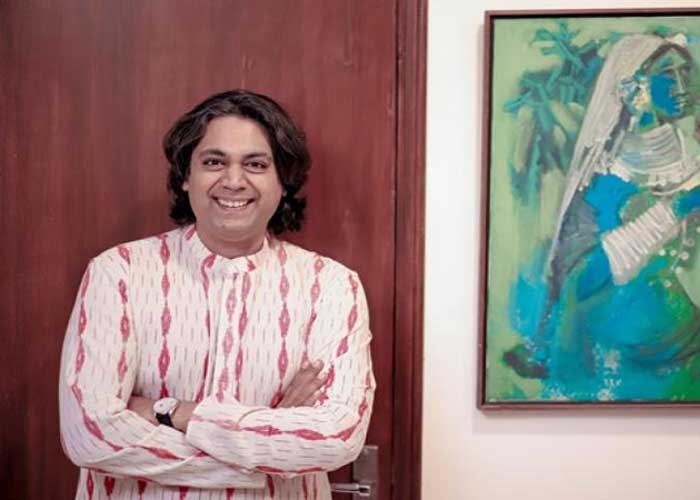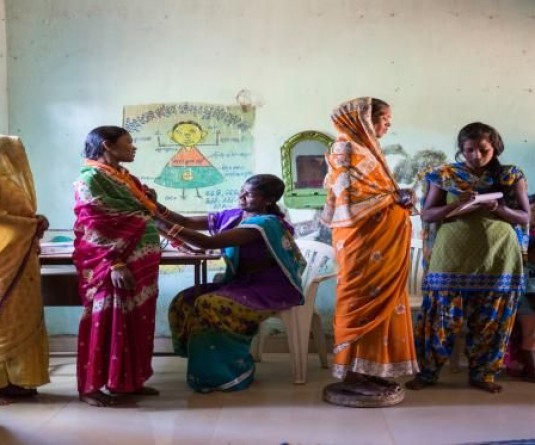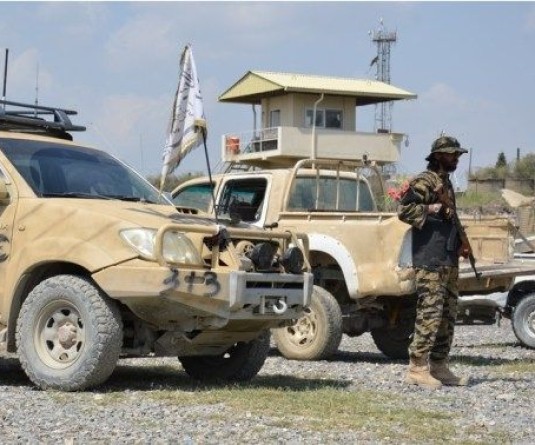9 Life Lessons We Can Learn From Freedom Fighters This Republic Day

By Kartik Bajoria
New Delhi, January 27 (IANSlife) The 26th of January marks a very special day in our calendars. For Indians in India and the world over, our nation's Republic Day symbolizes all that our great, free, democratic, secular nation stands for and embodies. Values that we sometimes take for granted. Privileges, that we ought to protect, nourish, nurture, savor. Liberty of thought and expression, to practice ones faith - in broad terms, the power to choose. The definite gift of Free Will.
This Republic Day, why not remind our next generation, particularly young children who will grow up to be proud Indians upholding the republic-spirit of our great nation, of five incredible freedom fighters and what their lives and sacrifices exemplified - virtues that we can learn from, imbibe, and propagate, in order to strengthen ourselves as individuals, and as a nation. Mahatma Gandhi, Subhash Chandra Bose, Rani Laxmi Bai, Bhagat Singh and Sarojini Naidu; these brave men and women of India's freedom struggle may have represented differing philosophies, espoused, at times, contradicting ideologies. They all however came to a common point wherein principals they stood for, were the same. Let us remind ourselves and our children through life lessons from their lives, of theirs and our country's greatness.
TAKE A STAND FOR WHAT YOU BELIEVE IN
From Gandhi protesting being unfairly disembarked from a Train, to atrocities of civil rights at the hands of the British that poetess Sarojini Naidu wrote about, to discriminatory treatment meted out by the imperialists that Bhagat Singh & Subhash Chandra Bose fought against, to the entirely forced and hostile advances of the British army to usurp Rani Laxmi Bai's kingdom - each of these brave men and women, when confronted with a moral dilemma, took it on, head on, and took a brave, bold, unafraid stance, even though it was a David vs Goliath scenario! Children of today's world would be very wise to learn to stand-up for what they believe in.
POWER OF TEAM-WORK
Another crucial lesson children can learn from all these men and women's' lives is their absolute belief in the power of team-building and team work. In the future, children will form leaders and it will be of utmost importance for them to appreciate the strength of a team, rather than being individualistic workers. Examine any of the freedom fighter's individual lives and one will find that each worked purposefully to construct a team of trustworthy, loyal, devoted and philosophically aligned men and women, who fought and furthered their causes right alongside them. Be it generals and friends in the armies of Bhagat Singh, Laxmi Bai and Bose, or an intellectual coterie of guides and advisors always with Gandhi & Naidu. The power of team-work was evidently important to each of them.
COMMUNICATION SKILLS
In a bygone era with limited to no real and effective means of fast or mass communication; all five men and women we are using as inspirations, led masses of people, through massive campaigns, wars, protests, and organized movements. How? It was only because they understood, appreciated and made efforts to put in place, a well-oiled and highly effective communication system. From Gandhi's well-attended speeches to Bhagat Singh and Bose's surreptitious networks of pan-India soldiers. From the power of the written word to the power of the spoken word, as practiced by Naidu & Laxmi Bai respectively. Each was using communication skills to their best efficacy, a vital lesson for children of today, who have a plethora of communication tools at their disposal, to use, correctly, rather than go atray and abuse these resources.
SACRIFICE SELF
What is also painfully clear is that all five individuals believed in a purpose far bigger and greater than themselves. That they willingly sacrificed their own lives, families, careers, safety, security; putting everything on the line for the greater good, the good of a nation in distress, inspires us with their courage of conviction and their do-good nature. If they hadn't bothered, who knows we might still have been an English colony, and not the free nation we so assume to be our birthright! A sacrificing and sensitive outlook is an immensely important lesson for children.
FIERCELY PATRIOTIC
The other life lesson that children ought to clearly see reflected in the lives of Gandhi, Laxmi Bai, Naidu, Bhagat Singh and Bose is their intense and immense patriotism. If it wasn't for their overarching sense of belongingness to the country and motherland, few amongst them would have gone to the extent that each of them did, fighting for the cause of freedom. It was this sense that NOTHING, not even their own lives, was bigger or greater than Country, which made each of them garner the strength and resolve to fight against all odds.
PHILOSOPHICAL
It wasn't only brute force of stubbornness of purpose that drive each of these five freedom fighters to achieve their goals. It was, in each individual's case, a well thought out, well considered, guiding light - a principled philosophy that each of them believed in, that made them be successful freedom fighters. It was this philosophy of �fighting for what was rightfully their own' that united them into a common mission, although their methods or means to that common end might have been different from each other's. The latter did not matter. The lesson to draw is that along with grit and determination, children must also develop a mature belief-system that guides them through life.
STEADFAST
Steadfastness of purpose is yet another element that unites our group of freedom fighters. They might have begun their individual battles, fought for the common cause of liberating India from the clutches of British tyranny. But had they NOT been steadfast, stubborn, with a dogged persuasion and self-motivation, they would have fallen by the wayside, having list sight of their goal. Many times in life, children give up too, because they are not steadfast, something that they can learn and incorporate in their own lives, from these great men and women.
DREAMERS
Sometimes as elders we tell our children not to dream. And this is a colossal mistake. Had these five brave men and women not seen a common dream, not dreamt of a free, independent India, their purpose would never have taken shape in the form of the movements they each led so heroically. It was this inconceivable dream that Gandhi, Naidu, Bhagat Singh, Bose and Laxmi Bai dreamt, that made them firm in their mission and resolve. It is a lovely and necessary thing to dream, and to dream big, and we would be wise to teach children the same life lesson.
ACTION-ORIENTED
Finally, it is absolutely vital for us to understand, and communicate to our children, the importance of putting plans into action. Too often, in classrooms or in boardrooms, much discussion takes place, much strategizing is done, to no avail. Alas, plans, remain plans, never seeing the light of day, unexecuted, they stay in dusty files, physical, virtual. The lesson to draw ultimately from our set of incredible freedom fighters is that plans they drew up in their lives, they had the courage, the will, the strength, and the sheer guts, to execute them. And we must as well, in our lives. Particularly for children, it is imperative that they understand that thought has to be backed-up with action.
The planet today, of which our country is a part, is grappling with a set of shared problems - be it terrorism or climate change. In these trying circumstances, drawing on life lessons from the lives of freedom fighters on Republic Day could just serve as the most required and most intelligent thing to do, in order to come together to fight off the different types of menace that face us today. These are the lessons we ought to impart to the younger generation, for it is the Children of today, that will be the saviors of tomorrow. And the lessons are all in our very own history, to draw from!
(Kartik Bajoria is a writer, educator and literary moderator)





